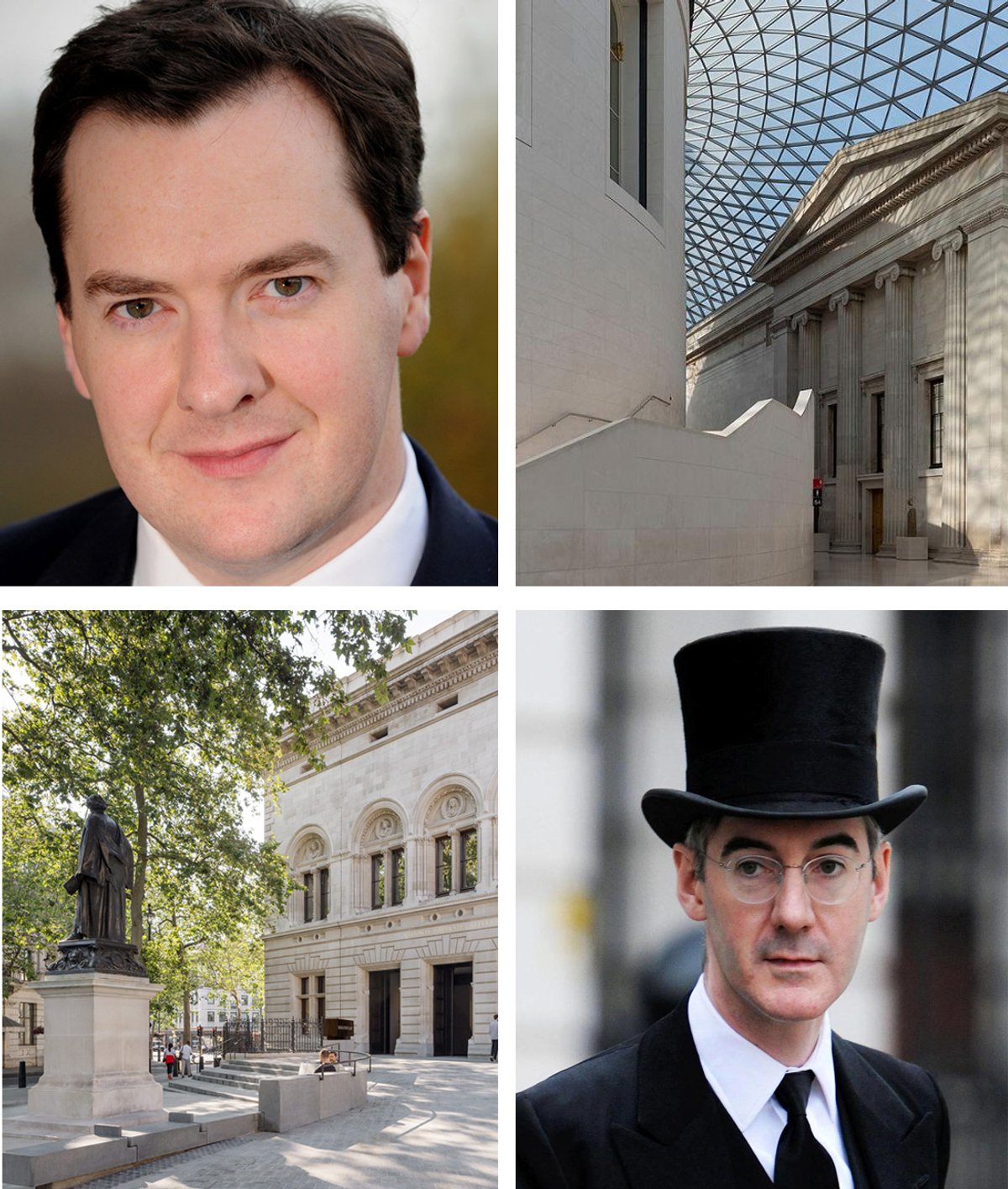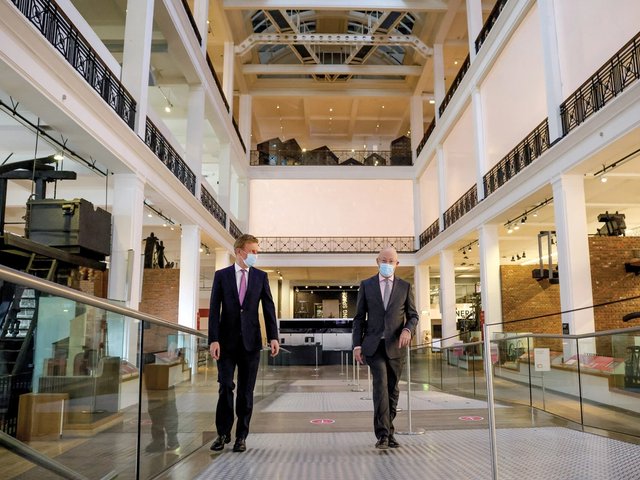We must prevent politicians from becoming trustees of UK museum boards.
From 2009 to 2013, I was an artist trustee of the Tate. During that time there were no members of government or active politicians on any of the boards of the big museums. I am sure many of the Tate’s board were Conservative or Labour supporters, perhaps members of these parties and probably donors, but there were no actual agents of political parties involved.
One of the duties of a trustee is to appoint other trustees. I interviewed one candidate who was in the Labour hierarchy at the end of the Gordon Brown era. They professed to have little interest or knowledge of the arts.
It occurred to me that the benefit of board membership was all in their direction. Much better to be seen as a champion of the arts than a rump member of a sinking ship.
Needless to say, that person was not appointed. However, in that period James Purnell jumped from the Labour government eventually to land a well-paid job at the BBC, and later Tristram Hunt gave up on Labour in opposition to become director of the V&A. My suspicion is that as the David Cameron era came to an ignominious end its proponents saw Purnell and Hunt as pathfinders to redemption in the arts.
Erosion of 'arm's length' principle
So, the former Conservative chancellor George Osborne became chair of the British Museum via a spell at the Evening Standard, and the former Conservative culture secretary Ed Vaizey (at least with some credentials) has recently become a trustee of the Tate. This erosion of the “arm’s length” principle, which has frowned on politicians meddling in the arts, has now been shredded by a group of political policy hawks who see museums as “Blob headquarters” to be infiltrated and neutralised.
Shifting from the London mayor’s office as Boris Johnson’s arts adviser to become policy head at No 10, Munira Mirza also invented a role for herself as enforcer of a paranoiac push to destroy the Blob’s “wokedom” in a weird self-styled “culture war”. Mirza, aided by the former Conservative culture secretary Oliver Dowden, sowed the seeds for a situation where the MP Jacob Rees-Mogg sits on the National Portrait Gallery board as an ex officio trustee, alongside his fellow MPs Penny Mordaunt and Chris Grayling. The chair of the National Maritime Museum resigned because of political interference over refusal by government to reappoint Dr Aminul Hoque as a trustee, and Roland Rudd (who messed up the Conservative remain campaign) is chair of the Tate.
I recently attended an event hosted by Rudd where he boasted about how little knowledge he had of contemporary art to a group of the Tate’s curators. I felt that he was, in effect, informing them how little he regarded their expertise and reminding them how powerful he was. We are shifting to an American model where the pre-eminent role in the museum is the chair of the board, not the museum director, and where—because public funding is shrinking—private collections as exhibitions in public museums are becoming more frequent. The “publicness” of our museums is being destroyed.
In effect there has been a takeover of governance of once proudly independent boards. When Emily Maitlis left the BBC she accused Robbie Gibb of being an “active Tory agent” who shaped the political output of the BBC. My concern is that now there are “active Tory agents” littering our arts boards. They would say they are “redressing an issue of balance”. They might claim to be “arbiters of impartiality”. Impartiality is a worthy goal of a media organisation, but it should not be the goal of a museum. Museums must be independent.
Artists are truth seekers. Truth is sometimes found in difficult spaces. Museums, their libraries and archives are centres of research; politicians should have no place in their governance, as good research is based on facts not political ideology. The public should defend museum independence. Independence is different from impartiality. An impartial museum is a vanilla, dead space where the public are invited to witness “received opinion” and look at art that does not frighten the horses. As artists we want to make art that makes people angry. We need to be able to exhibit uncomfortable art.
It is fundamental to free speech that museums remove all MPs from boards and restrict board membership to only one party: the art party. The art party is the only political party I have ever been a member of … but everyone is welcome.
• Bob and Roberta Smith (Patrick Brill) is a British artist and activist



